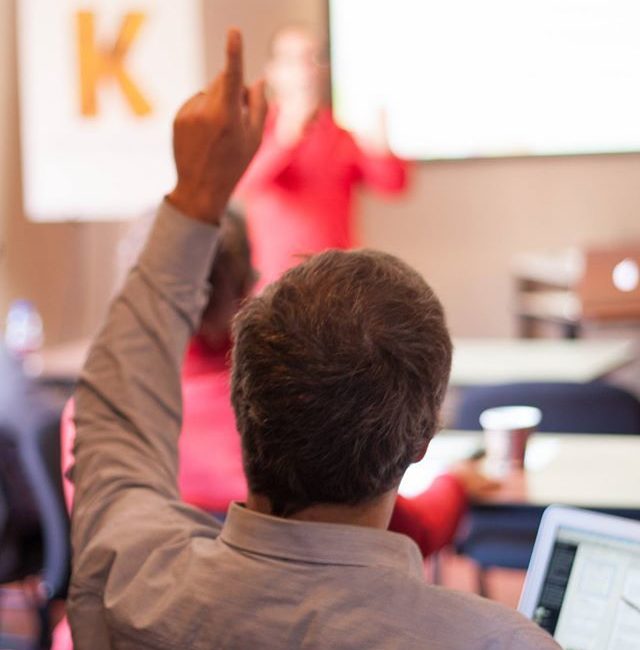Montreal, March 11, 2014
Within the framework of interviews with experts on education, I had the opportunity to speak with Constantin Tombet-Moupégnou. An entrepreneur and consultant in social entrepreneurship, Constantin is also pursuing a Ph.D in Administration in pedagogy of advanced education.
In the past six years in Montreal, Constantin has worked as a development agent of young entrepreneurs in a community center(Carrefour jeunesse-emploi Bourassa-Sauvé). His mission has consisted of accompanying the youth wishing to start a company or the ones who have started one. He has helped with six hundred projects hundred six of which led to creating a business. Seventy percent of these businesses are still active thanks to his humanistic approach regarding business based, among others, on co-construction. Constantin initiated the first summer school of entrepreneurship in Montreal. He also set up the first entrepreneurial appointment in North Montreal, the networking club of entrepreneurs of the youth employment center, the entrepreneurial Café as well as the workshop of jump starting business called “Immigrant women,” just to name a few.
Can his humanistic approach based on co-construction provide the relationship between the educator and the learner within the educative system in Africa with a new perspective?
What is co-construction?
It is an method accompaniment through which an experienced coach establishes a relationship with a less experienced individual. Both individuals work towards the goal of mutual growth.
In the co-construction approach the individual who has more experience assists the one with less experience. However, contrary to mentorship, the less experienced individual provides the other individual to refine his tools for knowledge transmission so that he or she can better guide him in his path to learning. This approach goes beyond a simple exchange of knowledge and experience. It is a long lasting relationship and an approach that humanizes entrepreneurship and emphasizes on the potential of the individual as well as his project while developing the tools related to his reality.
How can co-construction relate to teaching?
Co-construction becomes very useful when we work with the youth. This approach helps establish a strong relationship of respect and trust between the parties. As a facilitator, trainer or educator, we learn to listen to young people and know them in order to know their needs and cater to them better. In general, when young people feel that they are listened to and understood, they stop feeling threatened and start to feel that they are being heard. This feeling boosts their self-confidence and creates a feeling of respect for the educator.
Such an approach at school and university renders the teacher as well as the material more accessible. The educator is no longer viewed out of touch and authoritarian who is usually detested as it is the case in Africa.

What are some of the limitations of putting such a system in place in Africa?
The notions of respect and hierarchy are very important in Africa. Traditionally speaking, young people obey the elders and take their advice without contradicting them. In education similar to other aspects of society, such a vertical approach can unfortunately lead to power abuse.
Therefore, in order to avoid any kind of misinterpretation, it is important that in practicing this approach, respect and trust become the foundation of the relationship. Beyond establishing trust, the educator should understand that each learner is different from others and such realization can help him find tools to serve them better. Regarding entrepreneurship, co-construction makes the educator realize that the obstacles in creating business may be different than the common understanding of them and can be different from one individual to another. Hence, it is essential to customize the trainings that are offered at schools and institutions in order to render them more flexible and to lead to knowing the entrepreneur better.
Translation by Bahar Hoshyar
For further information on co-construction and activities of Constantin:
Articles on co-construction
http://www.theguardian.com/teacher-network/2012/oct/08/coconstructing-classes-pupils-teaching-tips
http://eclec-tic.blogspot.ca/2006/05/enseigner-en-favorisant-la-co.html
About Constantin




